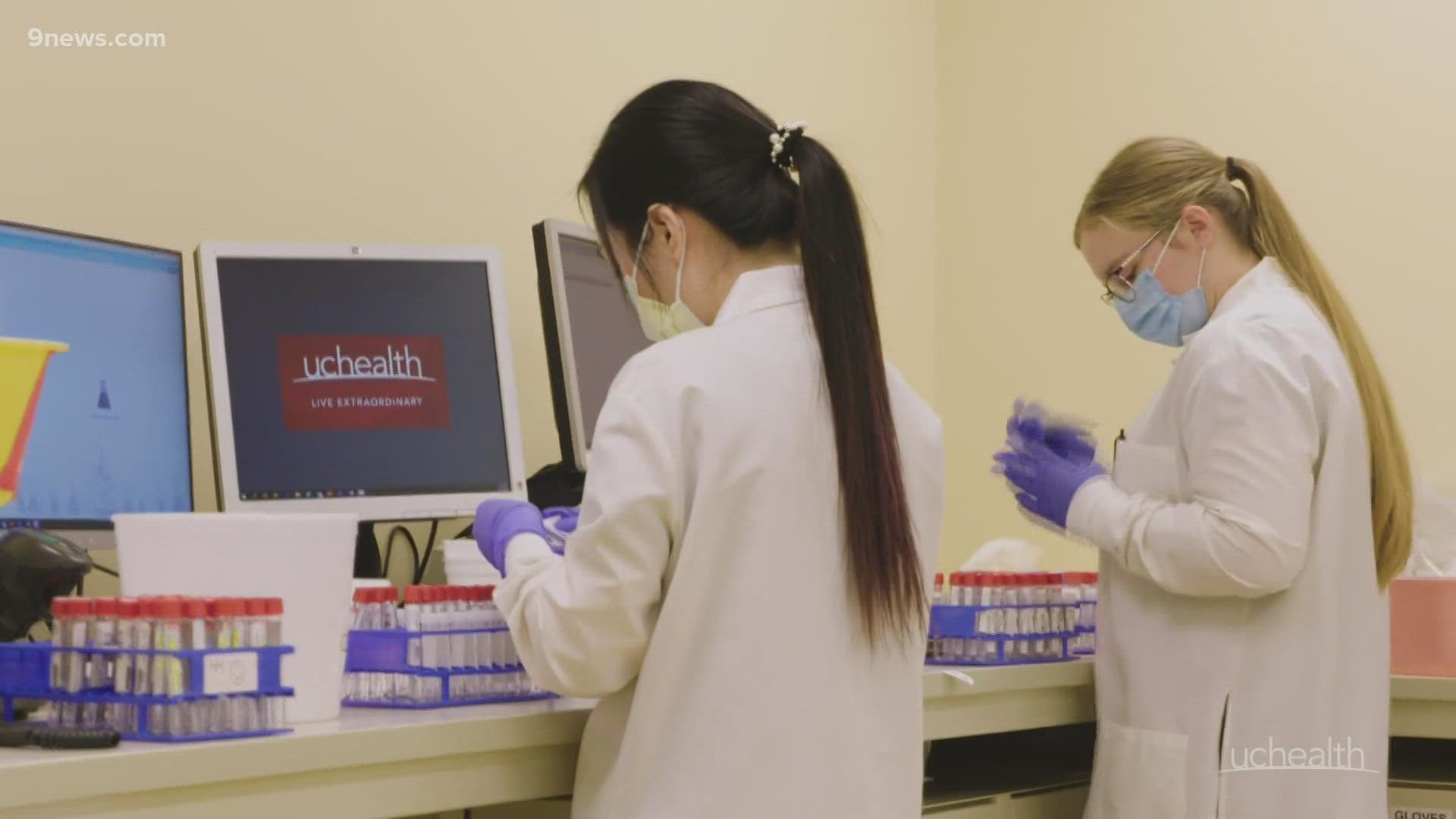DENVER — Dr. Michelle Barron is the senior medical director of infection prevention and control for UCHealth and a member of the Colorado Governor’s Expert Emergency Epidemic Response Committee. 9NEWS spoke with her Monday about what we know so far about the omicron variant.
(Editor’s note: This interview has been edited for context and clarity.)
9NEWS: What is the concern with the omicron variant?
Barron: It does appear to be more transmissible, or at least as transmissible as Delta. So pretty easy to catch it. The sample size they looked at was kind of small, only 100 people, so I think we still don't have a full view on how widespread it is.
Should the detection of this variant change our approach to the pandemic?
Barron: Once omicron is found here, it shouldn’t change what people should be doing already. Masking is still highly effective. Our vaccines are still very important in terms of mitigating transmission of this particular virus, whether omicron or otherwise.
Should we still be focusing on delta?
Barron: We should still be focusing on delta. We know delta is here. We know delta is hospitalizing patients. We know delta is causing people to become sick. So whether or not omicron becomes another variant we need to recognize, I think the here and now suggests that delta is still in play, and until it's not, that is where our energy should be focused.
Why do variants become more successful than others?
Barron: Variants of viruses are constantly developing, and most are not successful. Often, they’re not transmissible enough, or they’re beaten out by a stronger variant. It’s kind of like survival of the fittest, on a microscopic yet worldwide scale.
And if omicron is more transmissible than delta, would delta go away?
Barron: If omicron proves to be more transmissible than delta, it’s possible that it would replace delta and become the dominant strain of COVID-19. This is what happened in spring of 2021, when alpha replaced the original COVID-19 strain, and again this fall as the delta variant replaced the alpha variant. Right now, in Colorado, about 100% of the cases we are seeing are from the delta variant. Of course, it’s also possible that omicron won’t be successful. Beta, epsilon and other variants have popped up, then disappeared as stronger strains of the virus have taken over.
SUGGESTED VIDEOS: COVID-19 Coronavirus

